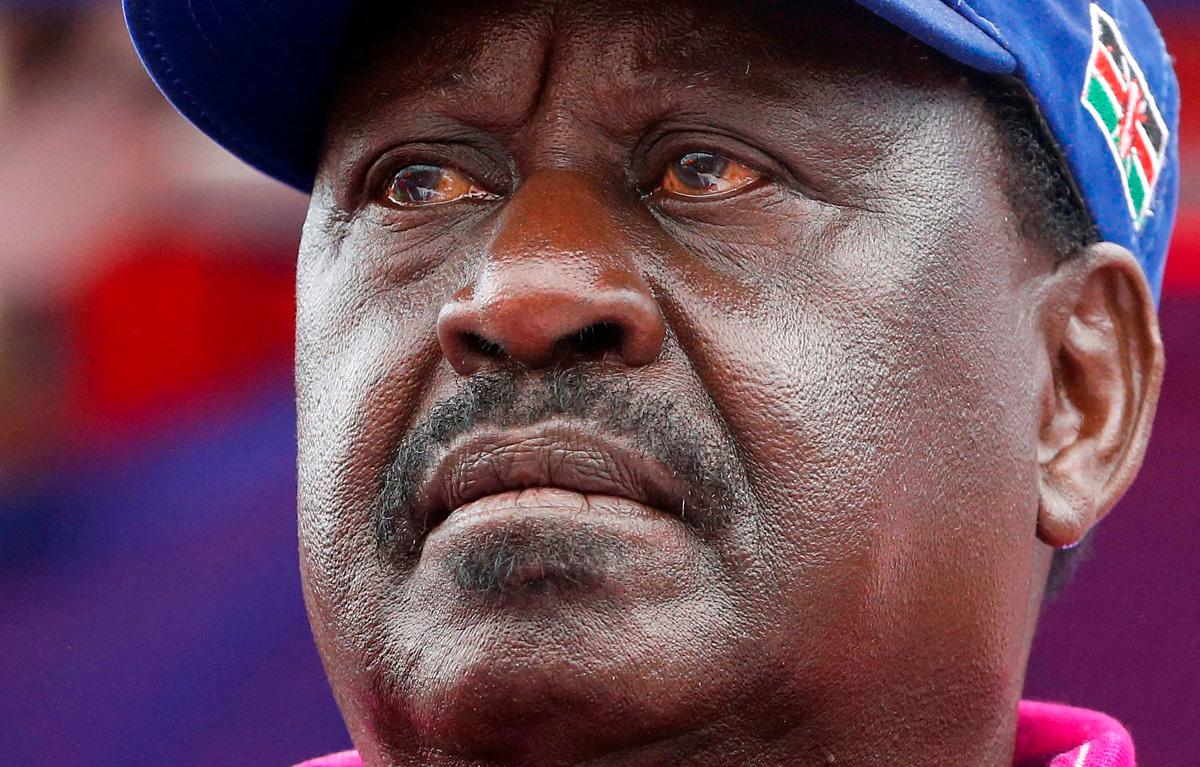NAIROBI: Kenya’s veteran opposition leader Raila Odinga has died at the age of 80, according to sources close to him.
A family source confirmed he died in India while receiving medical treatment, with the hospital citing a cardiac arrest as the cause.
Odinga spent decades at the centre of Kenyan politics, forming alliances with former enemies and serving a term as prime minister.
His ability to collaborate with rivals earned him the Luo nickname “Agwambo,“ which translates to “mysterious one.”
Kenyan President William Ruto visited the Odinga family home in Nairobi’s affluent Karen suburb following the news.
Devoted supporters referred to him as “Baba,“ meaning “father” in Swahili, remaining loyal throughout his long career.
Hundreds of grieving supporters from Nairobi’s Kibera slum marched to his home, many crying and waving twigs to ward off evil spirits.
His legacy as a democracy activist was instrumental in achieving Kenya’s two major reforms: multiparty democracy in 1991 and a new constitution in 2010.
Odinga led protests after the contested 2007 election, which triggered Kenya’s worst political violence since independence.
Approximately 1,300 people were killed and hundreds of thousands displaced during the ensuing ethnic clashes.
Much of the violence saw his western Luo tribe targeting the Kikuyu community, Kenya’s largest and most economically dominant ethnic group.
Post-election violence also erupted following the 2017 presidential vote, which Odinga disputed.
He was the son of Oginga Odinga, Kenya’s first vice-president under independence leader Jomo Kenyatta.
Despite his family’s substantial business interests, Odinga began his political life as a left-wing radical.
He named his son Fidel after Cuban Communist leader Fidel Castro, reflecting his early ideological leanings.
Odinga was first imprisoned in 1982 after a failed coup attempt against then-President Daniel arap Moi.
He served a total of nine years in detention, including six years in solitary confinement.
Odinga described his time in detention as a formative experience that taught him reflection and tolerance.
He first won a parliamentary seat in 1992, representing an area that included the Kibera slum.
Odinga held that constituency until 2013, known for his bright orange Hummer that attracted crowds.
He lost his initial presidential bid in 1997 against incumbent President Daniel arap Moi.
Four years later, Odinga formed a coalition government with Moi, a move some criticised as opportunistic.
He defended the decision as pragmatic, comparing democratisation to a gradual process rather than instant coffee.
This pattern of breaking and building alliances continued throughout the next two decades of his career.
Odinga became prime minister in 2008 under a national unity government headed by his former rival Mwai Kibaki.
This power-sharing agreement was designed to end the violent post-election crisis.
Following the 2017 election, he reconciled with opponent President Uhuru Kenyatta in the famous “Handshake” agreement.
He then lost the 2022 presidential election to William Ruto and unsuccessfully challenged the result in court.
Undeterred, Odinga launched street protests against the government despite being in his late seventies.
He struck a political pact with Ruto in 2024, effectively leaving Kenya without a formal opposition leader.
Some observers viewed this final move as cynical, while others saw it as consistent with his political strategy.
African Union commission chair Mahmoud Ali Youssouf praised Odinga as a steadfast champion of democracy.
Indian Prime Minister Narendra Modi described him as a towering statesman in his tribute.
Condolences also came from Ethiopian Prime Minister Abiy Ahmed and Tanzanian President Samia Suluhu Hassan.
The Tanzanian leader called his death a tragedy not just for Kenya but for the entire region. – Reuters









